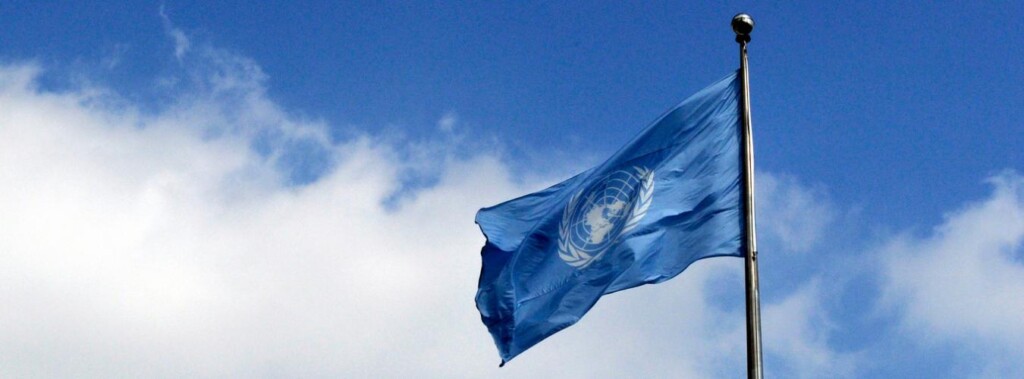UN ‘verifying credible reports’ of interethnic violence in West Darfur capital

UN flag (File photo: UN / Mark Garten)
The United Nations is “currently verifying credible reports” of widespread violence against members of the Masalit community in Darfur, particularly in the El Geneina area, “allegedly perpetrated by Arab militia groups with possible complicity by the RSF between November 4 and 6”.
In his daily press briefing on Tuesday, UN spokesman Stephane Dujarric said that these acts included “the targeted killing of Masalit men and women, inhuman and degrading treatment, and the forced expulsion of Masalit communities who had previously sought safety inside the Ardamata neighbourhood of El Geneina and surrounding areas”.
Dujarric also pointed to reports that “members of the Masalit militia targeted some members of the Arab community in El Geneina”.
These developments “unfortunately indicate the escalation of ethnic tensions and tribal conflicts in Sudan”, he said.
The UN spokesman urged all parties to the conflict to uphold their obligations under international humanitarian law and fulfil their duty to protect all civilians in areas under their control. “This includes the implementation of the Declaration of Commitment to Protect Sudanese Civilians, signed on 11 May in Jeddah, Saudi Arabia,” he said.
Genocide
As previously reported by Radio Dabanga, the United Nations Under-Secretary-General and Special Adviser on the Prevention of Genocide, Alice Wairimu Nderitu, has expressed “alarm” at the renewed escalation of violence between the Sudan Armed Forces (SAF) and the Rapid Support Forces (RSF) and affiliated militias in Darfur over the past two weeks.
Particularly with regard to events in Nyala, El Geneina, and Zalingei, Nderitu is “extremely concerned at the serious allegations of mass killings in an area housing a camp for displaced families in Ardamata, El Geneina, where more than 800 people were reportedly killed and 8,000 others fled to neighbouring Chad.”
Seventh month
The war in Sudan on Thursday completes its seventh month with intensification in large parts of the country, especially in Khartoum, Darfur and Kordofan.
The war has killed thousands, injured tens of thousands, displaced more than six million people, halted 70 percent of health facilities, and halted classes in schools and universities for more than seven months. With the significant contraction in the economy and the depreciation of the currency by more than 100 percent.
The war has led to the non-payment of salaries to workers and teachers for months and the cessation of private work, with extensive destruction of infrastructure and hundreds of facilities, most recently the jelly refinery and the Shambat bridge.
Retired Major Orwa Hamdan told Radio Dabanga that the destruction of infrastructure is reprehensible, noting that this reflects a decline in the values of the Sudanese character and stressed that it is very difficult to build it again, and said that the prevailing trend of the army is to resolve the battle militarily.
The United Kingdom’s Darfur Union condemned burying citizens alive in El Geneina and accused the RSF of committing these crimes.
In a statement, the union condemned the killing of Bishara Mago Tagabo, a community leader and businessman in El Geneina, West Darfur, earlier this week.
He stressed that his assassination comes within the framework of assassinations that targeted community leaders in El Geneina and Ardamata.
The video circulated on Monday of citizens being buried alive in a mass grave was described as frightening evidence of the RSF’s brutality and disregard for human life.
The EU saw the EU’s and UK’s inaction on war crimes in Darfur as a green light for the RSF. The Union called for more sanctions to be imposed on individuals and entities involved in committing crimes in Darfur. Hold RSF commanders accountable for crimes against humanity and war crimes they committed against the people of Darfur, and support the International Criminal Court in its investigations and prosecution of perpetrators in Darfur.











 and then
and then